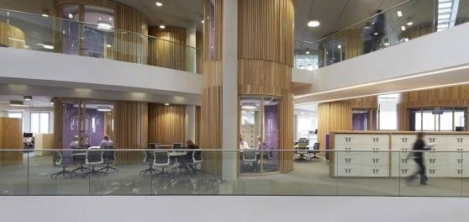December 29, 2014
Digital infrastructure boost will lead to urban brain drain, claims report
 The tap roots of the digital economy will not spread beneath the concrete of Tech City and other urban enclaves, but in the fertile soil of the UK countryside. That is the finding of a new briefing document from the Department for Environment, Food and Rural Affairs (Defra), which claims that rural areas are set to overtake towns and cities as the main driver of Britain’s digital economy. As a result of improvements in the country’s digital infrastructure and transport links as well as a changing relationship between firms, employees and contractors, there are now more people moving to the countryside from towns and cities than those moving in the opposite direction. The briefing suggests that by 2025, the rural economy will be worth an additional £35 billion and the productivity of rural areas could outstrip urban areas for the first time since the industrial revolution.
The tap roots of the digital economy will not spread beneath the concrete of Tech City and other urban enclaves, but in the fertile soil of the UK countryside. That is the finding of a new briefing document from the Department for Environment, Food and Rural Affairs (Defra), which claims that rural areas are set to overtake towns and cities as the main driver of Britain’s digital economy. As a result of improvements in the country’s digital infrastructure and transport links as well as a changing relationship between firms, employees and contractors, there are now more people moving to the countryside from towns and cities than those moving in the opposite direction. The briefing suggests that by 2025, the rural economy will be worth an additional £35 billion and the productivity of rural areas could outstrip urban areas for the first time since the industrial revolution.






















December 3, 2014
It’s no surprise a third of homeworkers choose to work in their pyjamas
by Sara Bean • Comment, Facilities management, Flexible working, News, Technology, Workplace